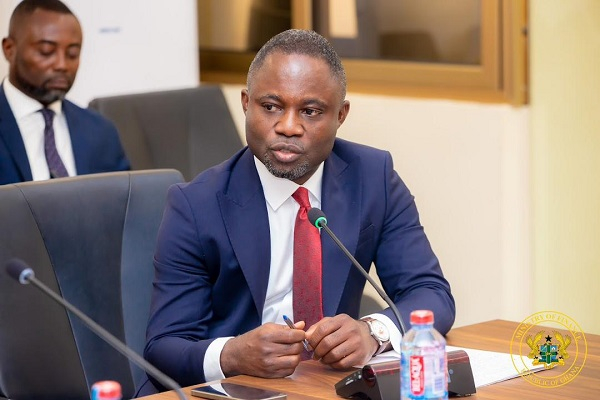Why ILO's Conference is very important to workers' unions -Labour Analyst - Tribune Online
The International Labour Conference is often described as the global parliament of labour. Its attendants include trade unionists, government delegates, and employer representatives from across the world.
While it might appear to the casual observer that ILC is a diplomatic summit with technical debates, for workers and their unions across Africa, the ILC is far more than that. It is a strategic frontline, a battleground for justice, and one of the few international spaces where the voices of workers, especially from the Global South can not only be heard but can help shape binding international labour standards.
In Africa where millions of workers operate under precarious conditions, union leaders are routinely harassed, and structural economic challenges undermine job security, the ILC provides a rare opportunity to confront these issues in a forum that compels governments and employers to listen.
Literally, the ILC bringing together governments, employers, and workers as equal constituents empowers trade unions with the opportunities and stage to report trampling on workers’ rights and other labour-related issues, and tools to protect workers. Take for instance at the ongoing 113 ILC, trade unions, led by ITUC and ITUC-Africa, have formally filed a report of exploitation and deaths of migrant workers against Saudi Arabia, seeking the global community to hold the Saudi government accountable.
The ILC is a rare tripartite stage of one and only kind in the international system. It gives organised labour an institutional seat at the table where international rules are made and reviewed. More importantly, it empowers trade unions to raise country-specific violations of labour rights, especially through the Committee on the Application of Standards (CAS) and the Committee on Freedom of Association (CFA).
Notable is the case of Zimbabwe, where the government repeatedly clamped down on union activities. Through coordinated action at the ILC, the Zimbabwe Congress of Trade Unions (ZCTU), supported by ITUC and ITUC-Africa, brought attention to violations of Convention 87 (Freedom of Association) and Convention 98 (Right to Organise and Collective Bargaining). This led to increased international scrutiny and placed diplomatic pressure on the government to respect trade union freedoms.
Nigeria is another notable instance, according to existing records. Trade unions in Nigeria have consistently used the ILC stage to expose issues such as the non-payment of salaries, arbitrary layoffs, and the increasing use of precarious contracts in both the public and private sectors. In 2023, delegates from Nigeria raised concerns about the persistent failure of state governments to implement the national minimum wage, a direct violation of Convention 131 on Minimum Wage Fixing. This sparked wider debate at the ILC and opened the door for further engagement with the ILO supervisory bodies. Currently,.Nigeria is ranked as one of the worst nations where labour rights are suppressed.
Additionally, the growing use of security forces to suppress labour protests, seen in Nigeria, Eswatini, and Sudan, has not gone unnoticed by the International community. Union delegates at the ILC use the forum to document and denounce these abuses, gaining international solidarity and spotlighting patterns of repression that often escape domestic media coverage. So to put it directly, the ILC is a conference trade unions cannot afford to miss the attendance.
For Nigerian trade unions in particular, the ILC represents a strategic platform for advocacy. Leveraging the ILC allows Nigerian unions to internationalise local struggles, attract global solidarity, and push for progressive reforms at home.
Already, the NLC and TUC have used ILO frameworks to lobby for legislation on workplace safety, promote gender equity, and advocate for fair migration policies. But more can be done.
At this time of rising inequality, climate breakdown, corporate impunity, and shrinking civic space, African workers need more than rhetoric, they need global platforms like the ILC that translate solidarity into action and policies into protection.
The International Labour Conference remains one of the most effective arenas for this. For African trade unions, it is a forum not only to resist injustice, but to reimagine the future of work; a future anchored in dignity, fairness, and inclusion.
As global debates intensify around artificial intelligence, platform work, green transitions, and geopolitical shifts, African workers cannot afford to be spectators. Through the ILC, they can be co-authors of the rules that will shape tomorrow’s world of work.
And for Nigeria, a country that sits at the intersection of Africa’s demographic and economic future, active and strategic engagement in the ILC is not optional, it is imperative.
Like I said earlier, the ILC is not only a platform for standard-setting or naming and shaming violators; it is also a laboratory for building solidarity, crafting joint strategies, and forging cross-border alliances that amplify the power of workers everywhere.
One of the most pressing global issues where this has played out is climate change and just transition. Africa faces a paradox: it contributes the least to global emissions yet bears the brunt of climate impacts. At the same time, workers in extractive industries; oil in Nigeria, coal in South Africa, mining in Zambia are being displaced without plans for reskilling or job creation.
African unions, led by ITUC-Africa and national federations, have used the ILC to demand that climate action plans include workers’ voices and uphold the principle of a just transition. This includes investing in green jobs, ensuring access to social protection, and retraining workers for the green economy.
Migration is another key issue. African workers, especially domestic and construction workers in the Gulf States, face exploitative conditions bordering on modern slavery. Through ILC discussions and side events, unions have spotlighted these abuses, pushing for bilateral labour agreements that reflect ILO standards and for the ratification of Convention 189 on Domestic Workers.
Similarly, the ILC has become a rallying point for addressing illicit financial flows and debt burdens, structural issues that deprive African governments of the revenue needed to fund public services and pay decent wages. The demand for debt audits and fair taxation frameworks has gained traction in recent years, thanks to coordinated union action within the ILC.
One of the ILC’s core functions is to develop and adopt Conventions and Recommendations that set international benchmarks for labour rights. For African countries, where labour laws often remain outdated or poorly enforced, these standards are crucial tools for reform and advocacy.
For example, Convention 190 (C190) on Violence and Harassment in the World of Work, adopted at the 2019 ILC. This landmark convention was a result of years of campaigning by global and regional trade unions, particularly ITUC-Africa, which brought to light harrowing testimonies of African women workers, factory workers in Ethiopia, domestic workers in Ghana, market traders in Nigeria who routinely face gender-based violence at work without any legal recourse.
In Nigeria, the Nigeria Labour Congress (NLC) and the Trade Union Congress (TUC) have since used C190 to press for domestic legal reforms and workplace policies that acknowledge and address sexual harassment. The convention has become a powerful advocacy tool, particularly in sectors like health, education, and informal markets, where women constitute the majority of the workforce.
Another key instrument is Recommendation 204, adopted in 2015, which addresses the transition from the informal to the formal economy. With over 85% of African workers operating informally, this recommendation is particularly relevant. Trade unions from Nigeria, Kenya, and Côte d’Ivoire have used it to engage policymakers on how to extend labour protections, social security, and collective bargaining rights to informal and platform workers.
In Nigeria, efforts to organise market women, digital gig workers, and informal artisans have gained momentum, thanks to international support and the normative backing provided by R204. It reinforces the message that informality should not mean invisibility or vulnerability.
READ ALSO: Nearly 3 million people die of work-related accidents, diseases —Ilo










